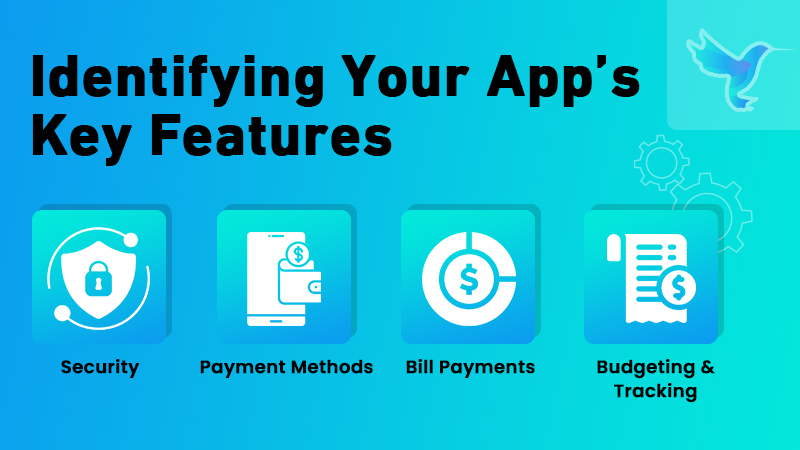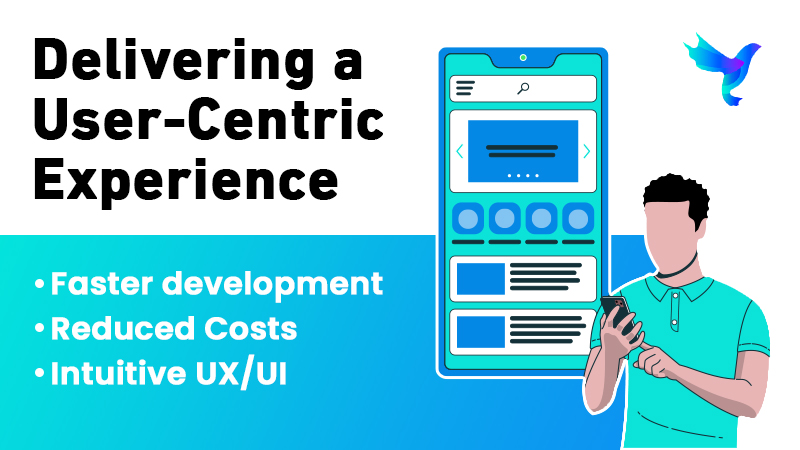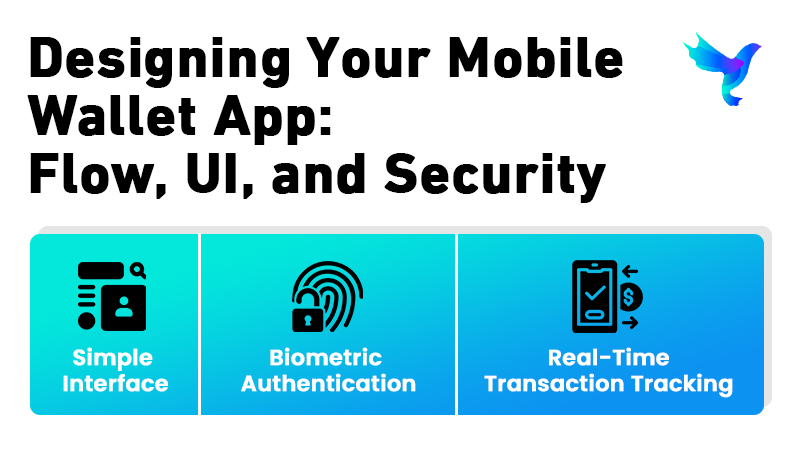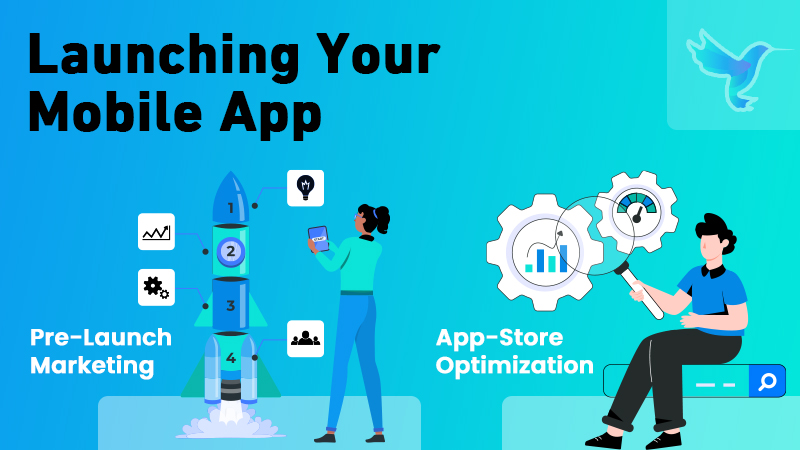The world has already gone mobile, and our wallets are following suit.
Digital wallets are the most convenient and useful man-made invention in this century, eliminating the need for carrying hard cash or chequebooks or card transactions everywhere. All you need is to make sure your bank account is linked to a wallet app, specifically designed for transactions, and you’re good to go.
With the global mobile payments market projected to reach about $23 trillion by the next year, there is no reason why people wouldn’t flock to build their own mobile wallet apps. The key, however, is to actually build them from scratch.
This comprehensive guide will help you understand the key areas of mobile app custom development, from idea inception to launch.
Understanding The Market And Your Audience
Every idea begins somewhere, and when you build something while targeting an audience or a specific market, it starts with understanding your audience’s needs and demands in the specific niche. Researching the mobile wallet landscape is the first step before taking a deep dive into mobile wallet app development.
Analyze the already existing players in the arena, and then try to make sense of the apps’ functionalities, as well as shortcomings. This would include all kinds of global wallet apps as well as regional apps.
Your research questions should be catered to your audiences; like if there are any redundant functionalities, any issues with UI, or any niche problems that need addressing. This is what your mobile wallet app will be offering to your audience- better functionalities to be on board.
DEFINING YOUR APP’S CORE FEATURES

Doing primary market research is always key to establish a clear understanding of the audience needs that aren’t being met in the current mobile wallet market, and the functionalities that they have become familiar with, so any other UI wouldn’t do for those. This is key to defining your mobile wallet app’s core features.
Of course, there are the absolutely essential features that you cannot do without, like:
Security:
There is nothing more important in a finance related app than security and encrypted data related to financial information of your mobile wallet app users. Ensure to pay extra attention to the layers of security as well as the authentication features – especially when dealing with larger amounts.
Payment Methods:
There are different methods that people use to pay their dues- normally, credit or debit cards. Integrating such information allows for smoother transactions and allows the user to not worry about punching in the information over and over again. And since not everyone might have credit cards, debit card users also enjoy the same benefits of the mobile wallet app.
Bill Payments:
Bill payment is another crucial need of mobile wallet users. Every month, a good chunk of any person’s salary goes towards bill payments. Integrating such features like mobile recharges, electricity bills, insurance payments, etc. are crucial for a user to fully accept the mobile wallet payment system- bringing in more audience for your app.
Budgeting and Tracking:
This is a feature not usually found in all mobile wallet apps. Budgeting and tracking would allow a unique experience for people who don’t usually keep track of their money flow. Integrating this simple feature into your app, with multiple categories to help a student, an employed, a freelancer, or an investor track their finances would definitely get you more users for your mobile wallet app.
Flutter: For A User-Centric Experience

Here’s the exciting part- Development phase! While every app’s development phase brings in new challenges and breathes life to incepted ideas, the framework on which you build your app is also important- for uniqueness, time-efficiency, cross-platform use, and more.
Here’s why investing in a Flutter app development company can help you build one of the best mobile wallet apps ever:
FASTER DEVELOPMENT:
Time is perhaps more crucial than actual currency in today’s day and age, and the most solid reason to choose Flutter for your mobile wallet app. The best feature of the flutter framework that helps you build interactive and smooth apps is the Hot Reload feature – allowing you to see real-time changes in your code.
REDUCED COSTS:
By using Flutter- notorious for its cross-platform seamless performance, you effectively reduce both the cost and the time required to develop an app that works on both iOS and Android.
INTUITIVE UX/UI:
Any Flutter app development company will make sure that the UX as well as UI for the mobile wallet app that you are building has a smooth and intuitive UI, for user ease and trust, especially with the app security.
Designing Your Mobile Wallet App: App Flow, UI, And Security Audits

While designing a mobile wallet app, there are a few crucial things that should be considered:
SIMPLE INTERFACE:
The simpler your app’s UI is, the better experience your users will have. A clean, uncluttered and intuitive UI is the key to making sure your users have a good experience with the app.
Apart from this, it is also crucial to integrate some tutorials and FAQs that people can refer to if they are unable to access a feature or do not know how to authenticate a payment.
BIOMETRIC AUTHENTICATION:
This one’s a no-brainer. If you aren’t making use of digital fingerprints or facial recognitions for secure logins and transactions, you may be risking your users’ sensitive data.
REAL-TIME TRANSACTION TRACKING:
A secure connection with banks ensures that users are immediately notified, via messages or emails, about any and every transaction and transfer that they have made. This ensures complete financial transparency- building trust within the app.
Before the launch of your mobile wallet app, crucial audits are a must. This includes performance and functionality testing to ensure the app works smoothly across different Operating systems and devices, and to evaluate the responsiveness of the app when under load. Security testing will entail testing any vulnerabilities that need to be fixed before launch.
Launching Your Mobile App

Deploying a new mobile wallet app in the market is no easy feat. It requires careful planning and strategizing to make sure it reaches your target audience. For this, you’ll need to leverage:
PRE-LAUNCH MARKETING:
This will involve generating some buzz around your new mobile wallet app through social media campaigns, targeted ads, and even influencer partnerships.
APP-STORE OPTIMIZATION:
Drafting compelling descriptions that include relevant keywords for SEO, and using multiple high-quality previews of your app will definitely help your app get discovered quickly after the launch.
Conclusion
The mobile wallet revolution is here to stay. There is no two-ways about the fact that constant innovation is key to conquering any market.
By understanding the key aspects of building a mobile wallet app mentioned in this guide, you’ll be able to break into the market with a great mobile wallet app. As for making it thrive, make sure to stay ahead on the latest financial trends like blockchain integration to make your app stand out.
